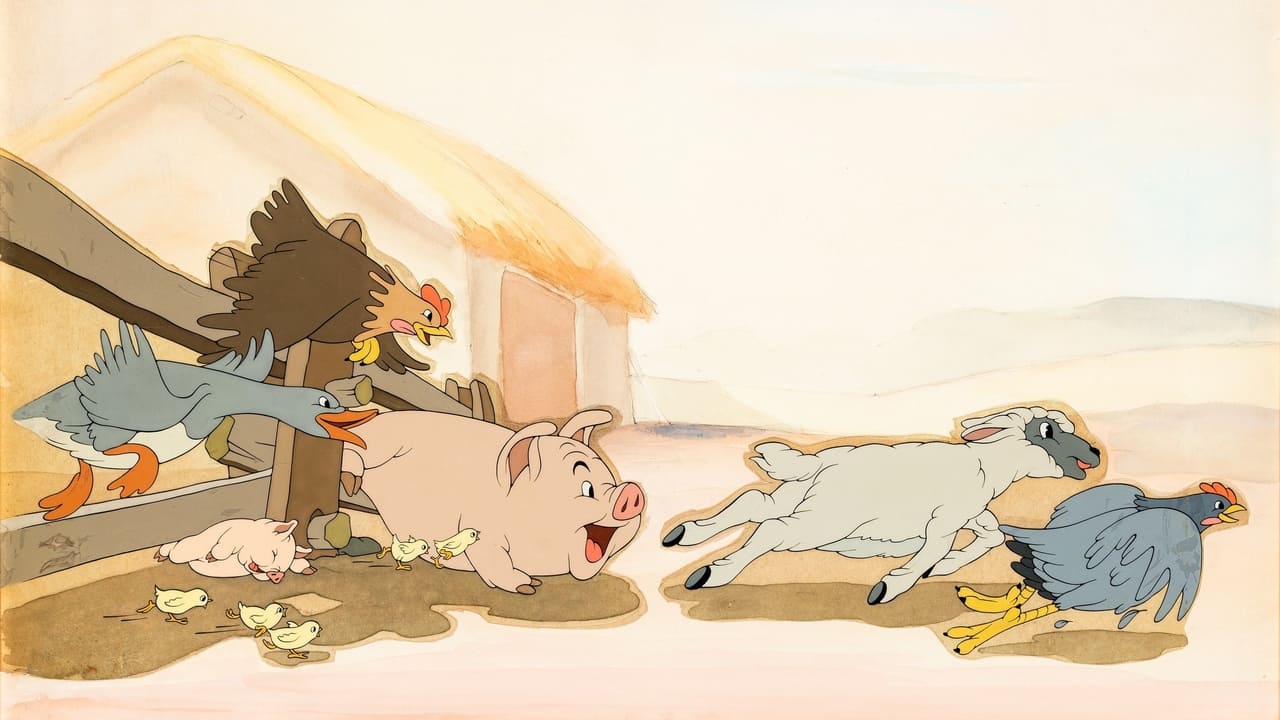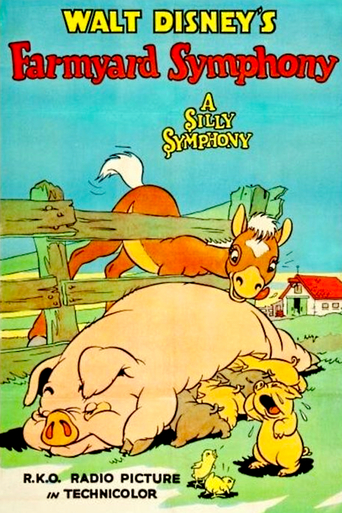



It is a performances centric movie
It's funny, it's tense, it features two great performances from two actors and the director expertly creates a web of odd tension where you actually don't know what is happening for the majority of the run time.
View MoreA terrific literary drama and character piece that shows how the process of creating art can be seen differently by those doing it and those looking at it from the outside.
View MoreThrough painfully honest and emotional moments, the movie becomes irresistibly relatable
View MoreThis is a nice little cartoon featuring a bunch of farm animals going out their daily routines, to the sounds of classical music. Cleverly done with some humorous moments and some recognizable voices, including Clarence Nash's Donald Duck voice heard in the group of ducks.Grade A-
View MoreThe technical prowess of the Silly Symphony series hit its peak in the mid to late 1930s. While The Old Mill (1937) is the peak of the series in terms of sheer beauty and technical innovation, Farmyard Symphony (1938) was still riding that wave. The animation is just gorgeous; there is a realism to the animal characters which looks forward to the final entry in Disney's Golden Age, Bambi (1942).Of course, the story is thin. I have heard this short described as an adaptation of the Chanticleer story, but that's not accurate. Farmyard Symphony is much more like the earliest Mickey Mouse and Silly Symphony shorts, which featured characters making music with gags thrown in.Overall a charming and lovely-looking short. Not essential, but worth watching for Disney buffs.
View MoreFarmyard Symphony, what can I say? Practically perfect in every way. Of course it is rather short on plot, but it has enough charm and fun to wholly compensate. The animation is colourful and fluid, no stiff movements or colour changes as far as I can see. The characters were wonderful, from the adorable piglets to the absolutely hilarious chickens, they alone contributed to the charm of this silly symphony. The best part? Has to be the music, a superb collage of classical music favourites such as the Pastoral Symphony, William Tell, The Barber of Seville, Tannhauser and Hungarian Rhapsody Number 2.This silly symphony is a very funny and wholly engaging one, and is up there with my favourites. 10/10 Bethany Cox
View MoreA Walt Disney SILLY SYMPHONY Cartoon Short.The FARMYARD SYMPHONY signals the start of another day for the farm animals. Baby colts & calves frolic & scamper, the rooster plights his noisy troth to a svelte hen, and a young pig searches for more food.Set to an amalgam of classic music, this cartoon is short on plot & long on charm. The animals are all well rendered; in fact, it's fascinating to compare this film to earlier entries in the Symphonies and see just how far the Disney animators had progressed in depicting lifelike farm fauna. It sounds like Clarence Nash & Florence Gill are vocalizing for the ducks & chickens.The SILLY SYMPHONIES, which Walt Disney produced for a ten year period beginning in 1929, are among the most interesting of series in the field of animation. Unlike the Mickey Mouse cartoons in which action was paramount, with the Symphonies the action was made to fit the music. There was little plot in the early Symphonies, which featured lively inanimate objects and anthropomorphic plants & animals, all moving frantically to the soundtrack. Gradually, however, the Symphonies became the school where Walt's animators learned to work with color and began to experiment with plot, characterization & photographic special effects. The pages of Fable & Fairy Tale, Myth & Mother Goose were all mined to provide story lines and even Hollywood's musicals & celebrities were effectively spoofed. It was from this rich soil that Disney's feature-length animation was to spring. In 1939, with SNOW WHITE successfully behind him and PINOCCHIO & FANTASIA on the near horizon, Walt phased out the SILLY SYMPHONIES; they had run their course & served their purpose.
View More